
澳門90後|社會科學碩士|財經媒體|澳門研究| 生活瑣事
"Seeking for more freedom of the press is not about going back to the past": A chicken-style review of the century-old history of press freedom in Macau
Author: Liao Zhihui (author of No. 16 Macao Studies)
Today I want to ask you a question: Does Macau have press freedom?
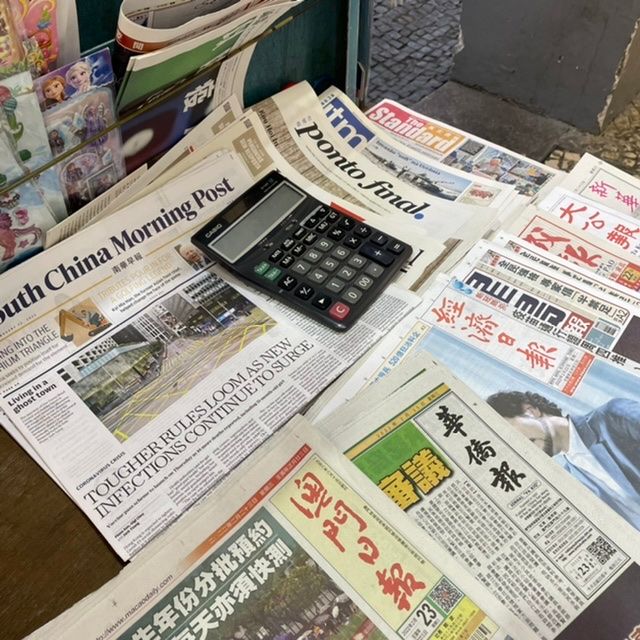
Macau Chief Executive Ho Iat Seng recently hosted a dinner for the local Chinese-language media, clearly stating that "the SAR government promises to, as always, guarantee freedom of the press in strict accordance with the provisions of the Constitution and the Basic Law."
Whether there is freedom of the press in Macau is an ongoing dialectical question. But some people think this is a false proposition, because even in the most free countries, such as the United States, the media is also subsidized by some government taxes and postage, so it is difficult to say that it is 100% free. This media funding policy also exists in Macau.
In addition, authoritarian research generally believes that in areas where the market is narrower, the government is more able to use such subsidies to control the media because of the lack of competitiveness of the local media. If this argument is accepted, then press freedom in Macau must "be worse than before" as media subsidies continue to increase due to Macau's rising economy.
But is it really so?
Don't forget that in the centuries of history from the colonial period to the handover, Macau has experienced the dictatorship and democratization of Portugal, the transition period of the handover, and the current "one country, two systems". And because it has two official languages, Chinese and Portuguese, it presents different news media systems.
If you think about it, you will see that the story is not so simple. The 100-year history of press freedom in Macau is more complicated than imagined.
Two Portuguese scholars, Nelson Ribeiro and José Simões, published a research article on press freedom in Macau last year. Using official archives, data and interviews with local media reporters, they tried to accurately (chicken essence) restore and discuss Macau media and those in power. The century-old interactive history is quite worthy of reference.
The Colonial Period: News as an Extension of Politics
Back in the colonial period of Macao and Portuguese, the researchers firstly believed that Macao journalism was difficult to have professional autonomy and was merely an "extension of political action". Because journalists faced the censorship of Salazar, the Portuguese dictator in the early 20th century.
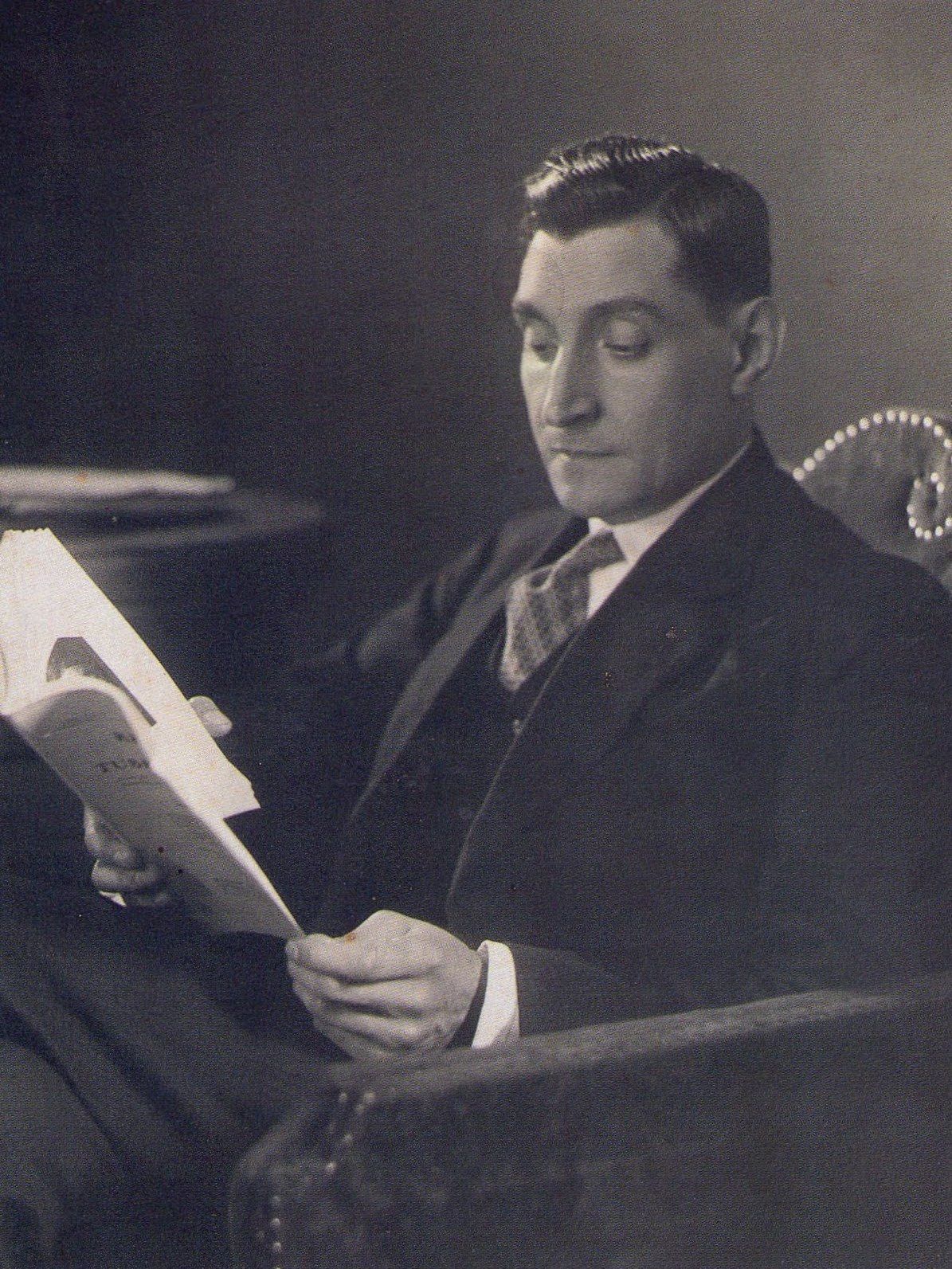
With Salazar's "New State" in 1926, which was essentially national and authoritarian, a new constitution was introduced in 1933, specifying all publications on social and political issues, whether newspapers or leaflets , must first be reviewed and approved by a government-appointed committee to prevent subversive public opinion.
Today, we do not know how much force this "tightening spell" can exert on the Macau media, which is thousands of miles away, but researchers believe that, on the whole, the Portuguese-speaking media are under more pressure than the Chinese-language media. In addition to facilitating official censorship of Portuguese-speaking media due to language closeness, it is also related to the greater autonomy of Chinese-language media after the pro-CCP leftists launched the "January 23 Incident/Riot" in 1966.
The researchers even believed that the Portuguese censorship during this period did not exist in the Chinese-language media, which was a "well-known fact".
In 1974, the democratization of Portugal took place, and the Portuguese-language media in Macau, which was already under pressure, were eager to move. Two media camps linked to different political parties have formed, one is Centro Democrático de Macau (CDM), which has close ties with the Portuguese Socialist Party, and founded the magazine Democracia em Marcha (Democracy in Motion) and the weekly newspaper Tribuna de Macau; the other is Associação para a Defesa dos Interesses de Macau (ADIM), which is close to the Portuguese Catholic Democratic Party, also founded the weekly Confluência and the daily Jornal de Macau.
However, paradoxically, even though Macau's "frontier" nature was better at escaping the dictator's "curse" in the dictatorship era, it was equally unfavorable for reform after democratization, and many traces of the old system still remained in the colonies.
For example, in the same year of democratization, a committee with the power to approve media subsidies was established simultaneously in Macau; the expulsion of journalists from Macau for political reasons still happened in 1983 (five Macau public television (TDM) journalists were expelled in that year). ); the writers employed by the government still exist in the local media; and the Portuguese-language media market, even though it has sprouted like spring after rain, is still quite small, with only 2-5 people in general newspapers.
Then everything changed rapidly in the 1990s when China and Portugal entered into negotiations to return to the final straight.
Transition: Conflict, Murder, Subsidies
In the 1990s, Macau entered the countdown to its return, and the press and publication environment was simultaneously affected by the democratization of parliament and the uncertainties of the new era.
On the one hand, parliament is more active in supporting freedom of the press. 7/90/M Publishing Law of 1990 guarantees freedom of the press in Macao and journalists' right to obtain information; it even discussed the establishment of a "Publishing Committee" to ensure the independence and diversity of the media and to handle disputes between the media and the public. ”, but was stillborn because he could not reach a consensus on the method of appointing committee members.
In addition, media subsidies are further institutionalized. Since 1987, every newspaper, radio and television station can receive 12,000 patacas (USD1,500) in publishing funding. Later, the Legislative Council set a threshold for the funding policy in 1991, and only media outlets that had operated at their own expense for at least three years were eligible to apply.
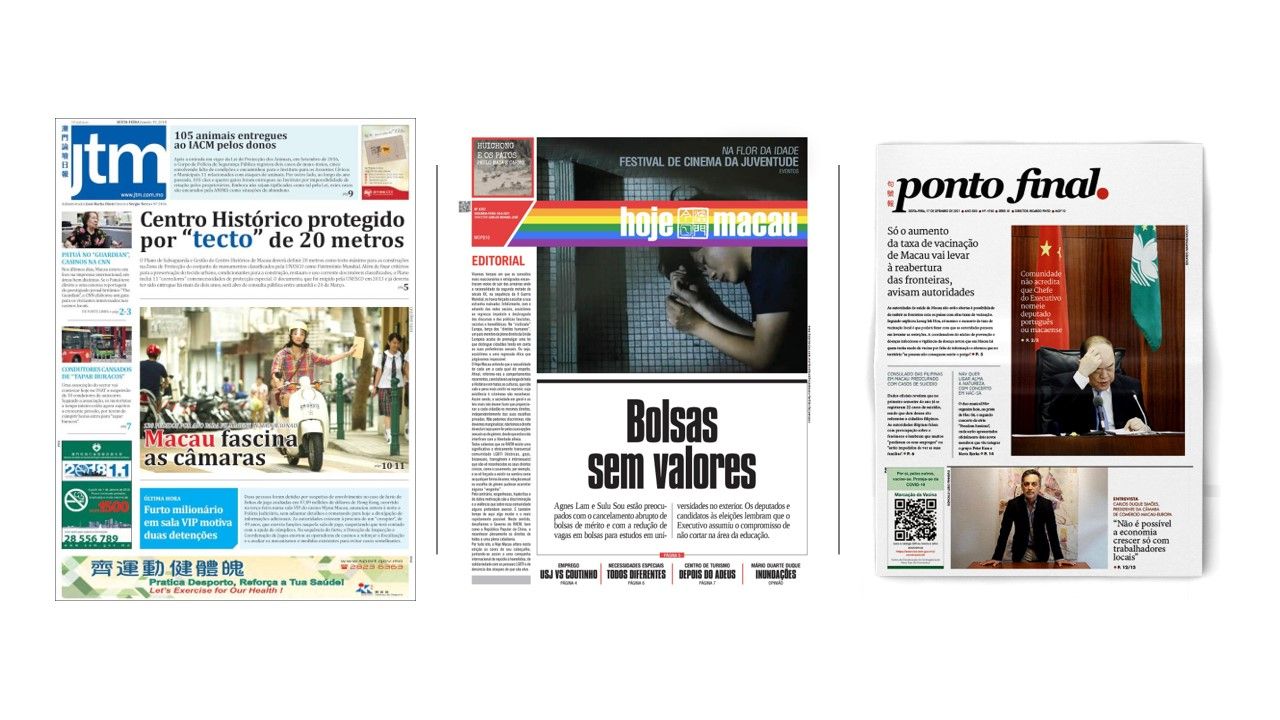
The above policies have brought Macao journalism into the era of a hundred flowers contending. The newspapers of the two Portuguese-speaking media camps mentioned above were merged into the “Jornal Tribuna de Macau ” (Jornal Tribuna de Macau) in the face of the challenge of returning; Ponto Final) were established in the early 1990s; there are also the Clarim weekly newspaper and Hoje Macau , which belong to the Catholic Church.
Chinese and English media are no different. Throughout the 1990s, there were 16 Chinese-language newspapers, plus the English-language media South China Morning Post and Hong Kong Standard that entered Macau from Hong Kong. The media market is pretty crowded.
Considering that the population of Macau at that time was only about 450,000, and the Portuguese-speaking population was only 1.9% (the 1996 census), according to the researcher’s statistics, Macau has the highest number of media per capita in the world.
But such numbers are not cause for joy.
To a large extent, the size of the Macau market cannot digest and support all news media. Most of the media do not rely on sales to make a living, but rely on backing sponsors and government subsidies to support them. These sponsors do not think that running a newspaper is profitable, but, in the words of scholars, is a kind of "investment", for the local businessmen and politicians behind the media to compete for and expand the social discourse power before and after the return.
This kind of journalism is hardly a benign development, and the relationship between journalists and the Governor of Macau is even worse. The closer to the return, the weaker the last Australian Governor's control over public opinion, coupled with the rioting of demons during the power vacuum period, the more the Portuguese media dared to report negative news about the ineffective colonial governance, and even forwarded these contents to the mainland of Portugal. This is helpless.
For "disobedient" media, such as the above-mentioned Futuro de Macau and "Period", the result may not be able to obtain government subsidies; the official and journalists' offense and defense battles in the courts have occurred from time to time; and a more extreme example is 1999 The attempted murder of the editor of "Macao Today" in 2009, the newspaper said in a report after the incident:
"In Macau, when journalists write about... powerful lawyers, gangsters, drug dealers, military deals, rulers or businessmen involved in corruption, politicians and thugs, there is a high probability of putting themselves at risk. Among..."
In this way, during the transitional period of nearly a decade of handover in the 1990s, the relationship between Macao's journalism and officialdom, at least in the Portuguese-speaking media, has become increasingly unstable as it maintains stability.
Then, after the handover, freedom of speech and publication in Macao is guaranteed by the Basic Law. Has the freedom of the press really arrived?
SAR Government: Press freedom?
The researchers believe that change and change occur at the same time.
The unchanged part is that Macau’s laws are largely inherited from the colonial period. The above-mentioned “Publishing Law”, which was passed by the Legislative Council in 1990 to protect journalists’ information rights, still exists in the SAR era.
The colonial government’s publishing subsidies for the media were also inherited by the new government. Of course, the amount of funding increased with the economic development, and the funding threshold was appropriately increased from the original at least three-year self-pay operation period to five years, and now only accepts two official Languages, i.e. Chinese and Portuguese for publication applications.
But what remains unchanged is the high dependence of the media on subsidies in the small market. Most news media still survive on official subsidies and official advertising. At least in the Portuguese-speaking media, the circulation is still around one thousand to several thousand at a time.
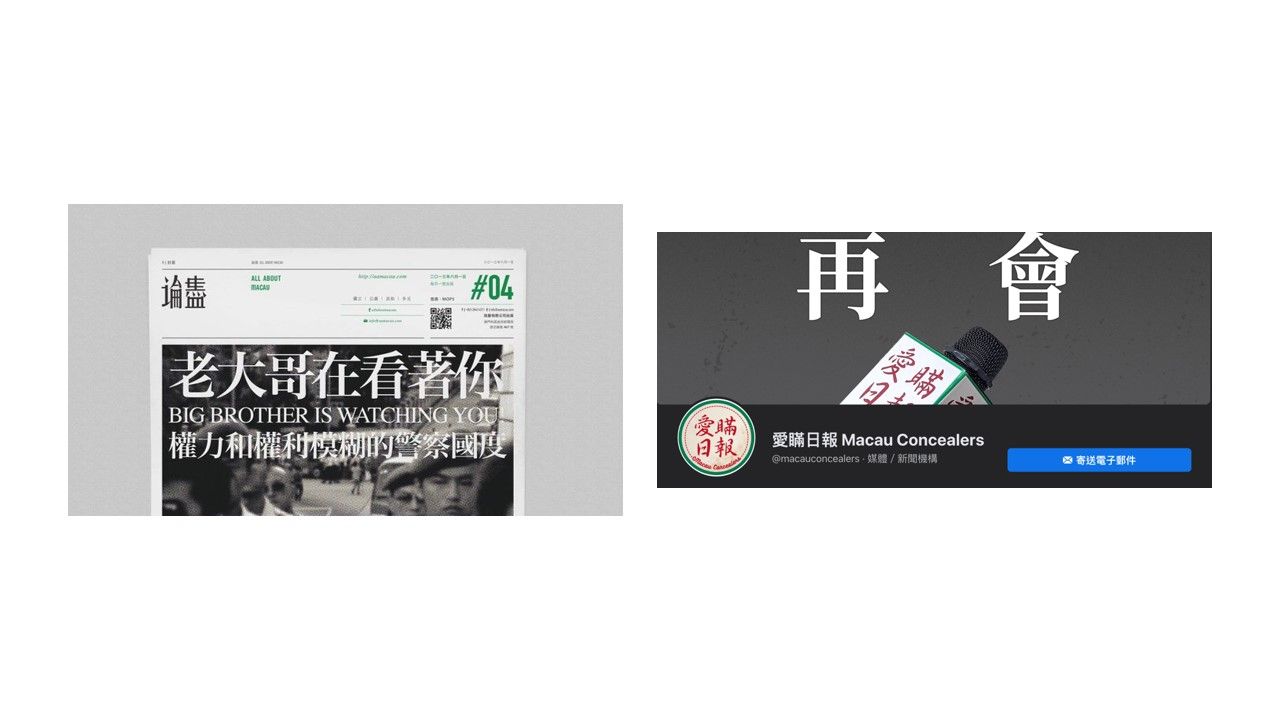
Of course, the era of Australians ruling Macao still opened up a certain space for the media industry. Critical Portuguese-language newspapers such as “Macao Today” and “Period” still exist, and Chinese media also include “On the Media” and “Ai Hide Daily” ( The latter has been discontinued in 2021).
However, media professionalism remains a concern. One of the interviewed reporters with more than ten years of experience said frankly:
"When the editorial room can hire reporters from Portugal, China, Malaysia, the Philippines, Australia and other places, the professionalism of each room is still low, and there is little right to speak on the editorial line set by the editor and the boss."
There are also those annual reports published by foreign press freedom observers that cannot be detailed...
From the perspective of whether journalists have been frequently prosecuted or even intimidated, the Macao journalism industry after the handover is indeed more free than before the handover.
A certain degree of freedom of the press did not appear in the 1980s and 1990s, when the colonial and democratized Macau was ruled by a country generally regarded by the West as an active "control" of public opinion, which seems odd. However, researchers believe that it is reasonable. After the handover, the Macau government's management of the media is roughly the same as China's control strategy for public opinion, because the Chinese government will deliberately maintain a certain critical voice in order to understand local people's sentiments and vent social dissatisfaction. From this perspective, Media criticism in Macau may also play a role for the ruling party.
Conclusion and reflection
The author was also a media practitioner in Macau. If I were to use my relatively short work experience and the actual situation of Macau’s expression space in recent years, I would definitely have reservations in commenting on the conclusions of this research. However, the researchers in this paper still raise at least two questions worth pondering.
First, with regard to the media subsidy system, which has been in place for many years, laymen may consider it to be detrimental to media independence. But for journalists to maintain diverse voices in such a small market (especially foreign language media), the subsidy system seems necessary.
Whether it is a necessary move or a necessary evil is left for everyone to think about.
Second, back to the question of whether there is press freedom in Macau. Before making a critique, it is best to understand the past, so as not to draw too shallow conclusions.
And if you want to fight for more freedom of the press for Macau, the researcher's last paragraph in the original text is worth concluding:
When asking for more freedom of the press, it does not mean returning to the past reality, or being cut off by the return; on the contrary, it requires shaping a new relationship between the media and the state, breaking the long-standing tradition of relying on the government in the past.
#Number of articles: 9️⃣1️⃣
✅ Stories of [Telling Stories on the Edge of the Empire] |✅Article Directory |✅Facebook Page
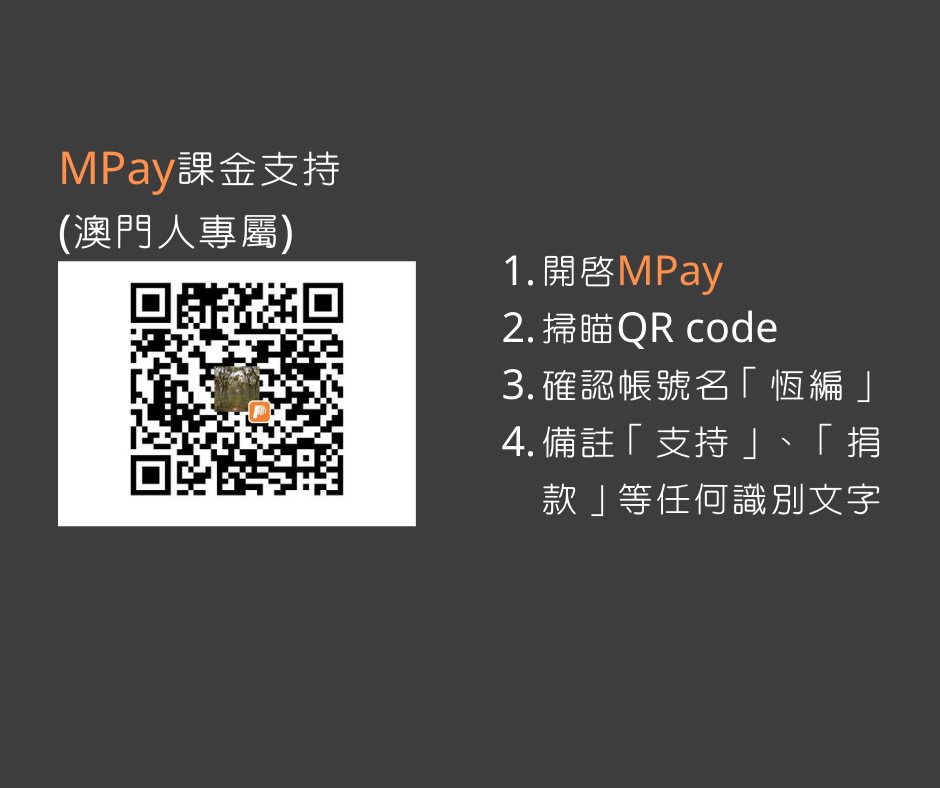
Like my work?
Don't forget to support or like, so I know you are with me..

在帝國邊陲講故事

四個社會科學和歷史背景的作者,嘗試訴說一座名叫「澳門」的看不見的城市。它的故事不止關乎自身,也關乎背後的帝國和邊陲。 👇我們的故事|Podcast|免費電子報|Patreon https://linktr.ee/macaology_empire
Comment…